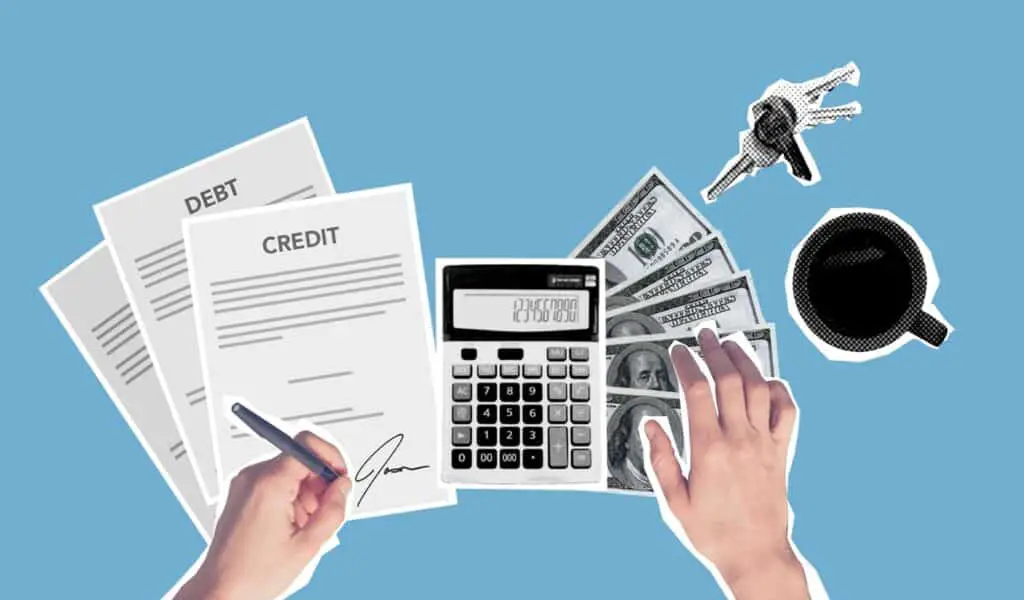
A margin account is a good way to buy securities, especially if you want to purchase more securities than you can with a cash account. But, how do you open a margin account? And do you need good credit to open a margin account?
You don’t need good credit to open a margin account. The brokerage will check your credit score before you open an account. Instead of a good credit score, they’ll require you to deposit a minimum amount into your account and maintain a minimum balance as you trade.
This article will explain what a margin account is, how you can open a margin account, and why your credit score doesn’t matter when opening a margin account. There’s also information on why your credit score may be affected by your margin account.
What Is a Margin Account?
A margin account is a trading account that allows you to borrow money from a brokerage to buy stocks. It’s similar to taking out a loan, but instead of using it for a car or a mortgage, you can only use it to purchase securities.
There’s usually interest that you must pay on money borrowed until you pay it back in a margin account. The interest on your margin account is similar to other types of investment accounts that charge fees on security trades.
For example, if your interest rate is five percent, you’ll need your investment to have grow at least five percent to see a gain on your investment. The interest rate is similar to other investment accounts with fees where you need to make more than the fee before you profit on your investment.
You also need to have the cash to pay for part of the securities you buy with your margin account. Usually, brokerages will allow you to borrow half of the cost of any security you’re buying, and you’ll need to fund the other part with money from your margin account.
The value of a margin account is based on the combination of available cash and the securities in the account. The more money you have in your margin account, the more securities you’ll be able to buy with your account.
How To Open a Margin Account?
You don’t need a high credit score to open a margin account, but there are a few things you need to have and know before you can open one.
First, you’ll need to deposit some money into your account as collateral. The minimum amount that most brokerages require to open an account is two thousand dollars. The amount can be high, though, depending on the brokerage and your account limit.
The collateral is a large part of why credit score does not matter. If you have a low credit score, there’s no history of you paying back debt in a timely manner.
But, if you have money in your account as collateral, credit score doesn’t matter since there’s money in your margin account in case you can’t pay the borrowed back. While the collateral may not cover all the money you borrow, it’s enough for banks to let you open a margin account.
Your account limit will be the maximum amount that you can borrow to purchase stocks from your margin account. The amount you can borrow will depend on the length of time your account has been open and the amount of collateral you have in your account.
Typically, the amount of money that you’ll borrow for purchasing securities is equal to half the amount of the cost. For example, if you want to buy four thousand dollars in securities, you’ll need to have two thousand dollars in your account. Then, you’ll be able to borrow the other two thousand dollars that you need for the purchase.
Why Does Your Credit Not Matter When Opening a Margin Account?
Your credit score indicates your ability to borrow and pay back debt. Lenders need to know your credit score when deciding whether or not to loan you money and how much to loan you.
However, you have cash and securities in your account with a margin account to back your loan. So, if you cannot pay it back, the brokerage will have your cash and securities as collateral.
There’s also another way that the brokerage will protect their investment in your margin account. A margin call is issued when the money and value of the securities in your account fall below a certain minimum. When a margin call is issued, you’ll need to sell some securities or add cash to your account before buying more securities.
Margin calls keep the brokerage’s investment safe so that you don’t over-borrow or keep the minimum amount in your account, which is the collateral for your loan. If you can’t add cash to the account or sell securities to raise your account balance by the deadline of your margin call, the brokerage will sell your securities for you until the minimum balance is reached.
Margin calls are the best way for brokers to keep your account and their loan secured. Securities, and therefore the balance in your account, can fluctuate easily as prices change and stocks gain or lose value. Without margin calls, the balance of your account could fall drastically, and they would have no way to protect the amount they lent you.
Credit scores project your creditworthiness before you get your loan, whereas a margin call keeps your creditworthiness in check throughout the loan period.
When Does a Margin Account Affect Your Credit Score?
A margin account works just like a standard loan. If you can’t pay back any money you borrow, you’ll face the consequences, including a hit to your credit score.
Margin accounts are risky because the securities in your account can lose value quickly, and if you can’t make up for the losses and pay back what you borrowed, you’ll need to default on your loan. Even if you have a high credit score, it can take a hit if you default on your margin account.
If you default on a margin account and your credit score goes down, you’ll have a hard time taking out other loans, so you want to be smart about your margin account and the securities you purchase.
Your credit score could also temporarily decrease when you open a margin account. While you don’t need a good credit score to open a margin account, the brokerage will still run a credit report when you apply to open one.
When creditors check your credit, they’ll do a hard inquiry. A hard inquiry will affect your credit score, and it’ll temporarily decrease your score by a few points. This drop could last up to a few months, and the hard inquiry will also show up on your credit report for two years.
A hard inquiry is different from a soft inquiry which doesn’t affect your credit score. A soft inquiry happens when lenders check your credit score for a pre-qualification on a loan or credit card or when you check your credit score.
Learn More About Credit Scores and Margin Accounts
Margin accounts and credit scores can be confusing. Below are some resources you can use to learn more about both. They’re great for beginners and more advanced investors.
First, Credit Secrets by Scott Moss available on Amazon.com is the ultimate resource for understanding and getting a high credit score. If you do have a low credit score, you will find tips and ideas you can use to raise it.
Another book about the basics of credit scores is Your Score by Anthony Davenport available on Amazon.com. Once you have a high credit score, you’ll learn how to keep it high with all the hidden secrets that creditors don’t want you to know.
A third great resource about credit scores and how they are calculated is this video from Concerning Reality on YouTube:
If you want to learn more about margin trading, Leveraged Trading by Robert Carver available on Amazon.com has great information about margin accounts. There’s also information about other types of trading that you can use to supplement your margin account. The book has information for beginners and advanced traders so you can keep learning as you trade.
Final Thoughts
You don’t need a high credit score to open a margin account. But, you’ll need to have a minimum balance in your account to start trading, and you must maintain a minimum value between your cash in securities.
Unlike other types of loans, you‘ll need to pay part of each security purchase, as you’ll only be able to borrow half of the cost through your account. If you default on your margin account, your credit score will decrease.
